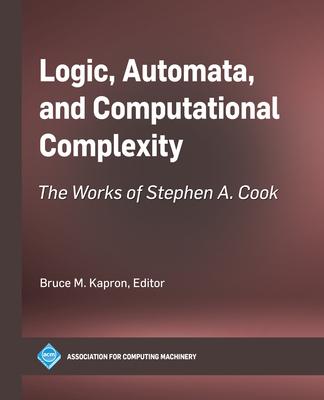Professor Stephen A. Cook is a pioneer of the theory of computational complexity. His work on NP-completeness and the P vs. NP problem remains a central focus of this field. Cook won the 1982 Turing Award for "his advancement of our understanding of the complexity of computation in a significant and profound way." This volume includes a selection of seminal papers embodying the work that led to this award, exemplifying Cook's synthesis of ideas and techniques from logic and the theory of computation including NP-completeness, proof complexity, bounded arithmetic, and parallel and space-bounded computation. These papers are accompanied by contributed articles by leading researchers in these areas, which convey to a general reader the importance of Cook's ideas and their enduring impact on the research community. The book also contains biographical material, Cook's Turing Award lecture, and an interview. Together these provide a portrait of Cook as a recognized leader and innovator in mathematics and computer science, as well as a gentle mentor and colleague.

Logic, Automata, and Computational Complexity: The Works of Stephen A. Cook
Professor Stephen A. Cook is a pioneer of the theory of computational complexity. His work on NP-completeness and the P vs. NP problem remains a central focus of this field. Cook won the 1982 Turing Award for "his advancement of our understanding of the complexity of computation in a significant and profound way." This volume includes a selection of seminal papers embodying the work that led to this award, exemplifying Cook's synthesis of ideas and techniques from logic and the theory of computation including NP-completeness, proof complexity, bounded arithmetic, and parallel and space-bounded computation. These papers are accompanied by contributed articles by leading researchers in these areas, which convey to a general reader the importance of Cook's ideas and their enduring impact on the research community. The book also contains biographical material, Cook's Turing Award lecture, and an interview. Together these provide a portrait of Cook as a recognized leader and innovator in mathematics and computer science, as well as a gentle mentor and colleague.